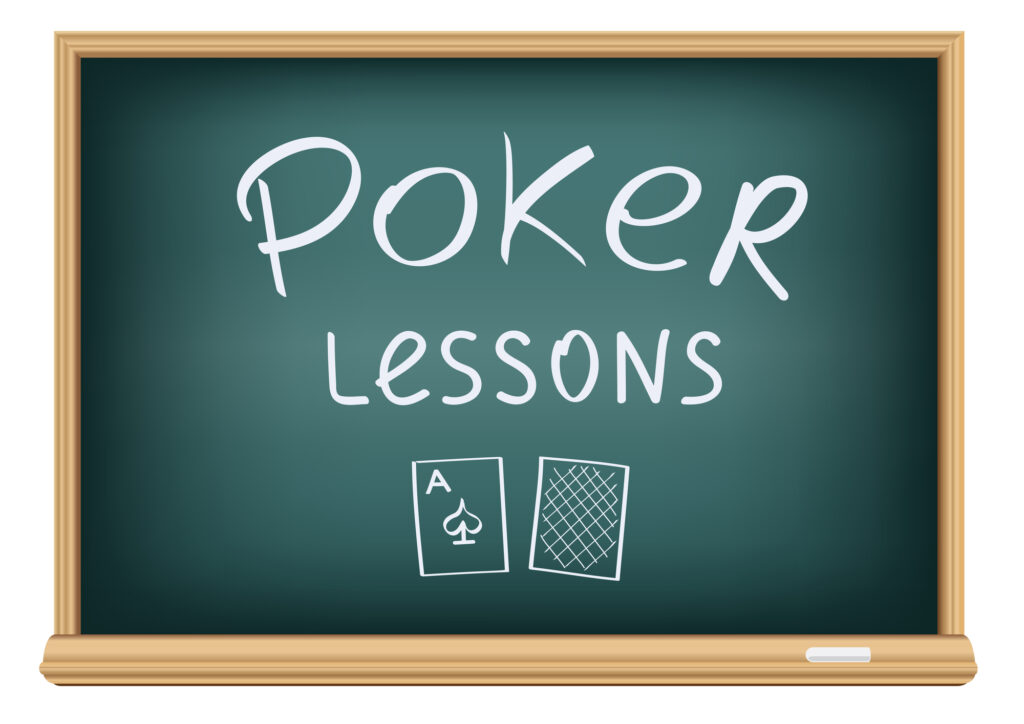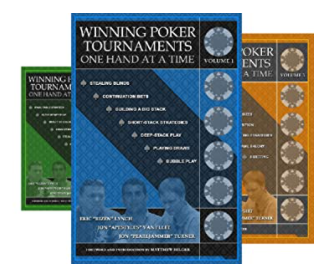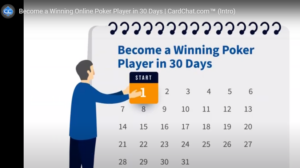Every year I see an influx of students in the months before the World Series of Poker. For many players, the WSOP final table, the TV time, and the bracelet are the ultimate goal. And, having been there, I can tell you that it is really all it’s cracked up to be. It won’t make you world-famous, nor will it make you rich beyond your wildest dreams unless you win the Main Event, but being a bracelet winner is something you’ll carry with you for the rest of your life.

Those students usually want to know the secret. They want Fox’s Three Easy Lessons to Winning a Bracelet. If it was that easy, I’d have more than one! The truth is, getting ready for a big tournament series, especially the biggest series of the year, takes some real work. What a good coach can do is provide a structure for that work, some direction, and a lot of homework.
We have less than two weeks before the series starts, so in this article, I’ll stick with options that can help you improve quickly, but you’ll see more long-term strategy advice from me here on CardsChat in the near future. The options for improving your skills break down into three parts – books, online training, and personal coaching. Let’s look at each one, and I’ll offer my opinion on the best options.
Poker strategy books
When I started learning the game, there were about six books that were even readable, and none of them were specifically directed toward tournaments. Now, the options are nearly endless, but I have a few favorites that I use like textbooks with my students, and they’re all excellent options for preparing for the WSOP.
Winning Poker Tournaments One Hand At A Time (Volumes 1-3)
The three authors of this book are all excellent players, and Mathew Hilger did a great job distilling their strategies in ways that are easy to understand. It’s remarkable how well these books still stand up even many years after they were published. The hand examples are all from online games and there’s no real focus on GTO, but how much game theory did you think you were going to learn in the next few weeks anyway? 
What these books do well is help the reader understand how to attack ranges, size bets, and exploit weakness. They also explain poker math along with the hands, and show how different expert players might approach a hand. I recommend these books to my students for a good basic understanding of how the game works and how to think about a tournament hand.
I also highly recommend Andrew Brokos’ book Play Optimal Poker, Raiser’s Edge from Bertrand Grospellier and others, Jared Tendler’s excellent work The Mental Game of Poker, and anything from Dr. Alan Schoonmaker on the mental game.
And what kind of author would I be if I didn’t mention my own book, Short Stack Ninja, which is the ultimate guide to playing a short stack in tournaments. You’ll be short-stacked at some point in almost every tournament you play, and reader response to the book has been great.
Online training
If books aren’t a great learning tool for you, videos and interactive websites may work better. There is a huge range of pricing and skill level for online training these days, with some solid free content, a ton of great stuff available for a reasonable monthly fee, and even some programs costing thousands of dollars. I think the best reasonably priced content is below, though there are so many options it’s impossible to keep up with all of them.
Learn Pro Poker is an excellent option for those interested in game theory optimal play, where you can learn optimal play in a nicely structured way from game theory expert Ryan Laplante and attend weekly live chat sessions with the man himself.
Red Chip Poker hosts my Tournament Core 2.0 course which takes you through an entire tournament with opponent profiles that help you learn to play against common player types from the WSOP. This course was specifically designed for smaller buy-in ($500-$1,500) events at the WSOP and includes almost two dozen videos. There is also some excellent content on the site from experts like James Sweeney and Ed Miller.
Other strong training sites include Upswing Poker and Run It Once, as well as a free course hosted right here on CardsChat Become A Winning Poker Player In 30 Days.
Personal Coaching
Hiring a coach is the most expensive option on my list, but it’s also the fastest and most effective. While the upfront cost is higher, the returns from a good coach will be significant and you’ll be effectively giving yourself a raise for the rest of your poker career with every dollar you spend. If you plan to play for many years, investing in a coach now is a great move.

One downside is that there isn’t a certification program for poker coaches and it can be tough to find one who’s right for you. Anyone can say that they’re a poker coach, but very few people have both the knowledge, and an understanding of how to actually teach those skills to others. Most coaching these days is done via Zoom or some other web meeting software, so you can work on your game from the comfort of your home.
I’ve been coaching poker for more than 10 years myself, and I can recommend the following coaches as solid players who can help you improve and are an excellent value for the money.
Ryan Laplante is an excellent tournament strategy coach and is a great coach when it comes to game theory and poker math. Dr. Alan Schoonmaker can help you play your best game. He’s a Ph.D. psychologist from Berkeley who’s written many books on poker psychology and was a big help to me personally. If you have a tilt problem, Al can help.
Alex ‘Assassinato’ Fitzgerald is an excellent tournament coach with a solid understanding of how to teach the game. You can even contact me for coaching rates for tournaments, cash games, and mixed games too. I love coaching.
The WSOP is different
Being a winner in the world’s toughest tournament fields requires a whole different approach than beating the tournaments at your local card room. Plan to be at your best every day. You may only get one or two shots at a serious score over the course of the series, and when the cards break your way, you need to be well-rested, well-fed, free from stress, and as sharp as you can be.
Plan these things out ahead of time. How will you get enough sleep? Where will you find good food? What sources of stress and distraction can you get rid of? One mistake can end your tournament, so do everything you can to prepare and minimize those mistakes. Good luck, and if the poker gods are willing, I’ll see you at the final table.


